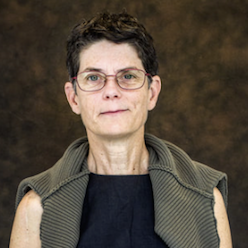
Professors Ito Peng and Otgontugs Banzragch have received funding from the New Frontiers Research Fund (NFRF) to conduct research into the care economy in Mongolia. This proposal responds to a Special Call from NFRF for research “to mobilize Canadian-led research efforts in support of a more equitable, sustainable and resilient postpandemic reality.” NFRF funds projects deemed to have high risk and high impact. The program awarded this project $500,000 CAD for two years.
Project Summary
This project will analyze Mongolia’s care infrastructure and produce a gender-transformative macroeconomic model to support the development of effective inclusive recovery strategies.
Working with government agencies, NGOs and local/community actors, our goals are to:
- undertake 2 quantitative and qualitative surveys to measure the impacts of the pandemic on women, focusing on the two most marginalized populations: nomadic people and those living in slum areas in the capital city
- calculate the contribution of unpaid and paid care to the Mongolian economy using existing data sources and data generated by the surveys; and
- develop a macroeconomic model to estimate the impact of care policies on factors including paid/unpaid care, employment, and output. This project will show the pandemic’s impact on women and vulnerable populations, provide evidence for a rethink of care as a social/economic investment, and contribute to gender-transformative recovery strategies in Mongolia and other low-middle-income countries.
The COVID pandemic has hugely increased women’s carework. In low-middle-income countries, climate-related adversities – longer droughts, increased dust storms – have further added to women’s heavy care burden. Research show the importance of unpaid carework in nurturing and protecting current and future generations of people and for sustaining labor force, even as much of women’s carework remains outside of the GDP. Studies also show systematic devaluation of paid carework: carework is relegated to vulnerable people — women, racialized and immigrant workers, and increasingly, migrant workers. We need to rethink care in postpandemic recovery — from a family responsibility to a key investment for human wellbeing, decent work, fiscal health and sustainability. New macroeconomic models incorporating care can show how investing in care can provide widespread benefits.
Mongolia is experiencing demographic changes, climate concerns, and urgently need effective gender macroeconomic policies. The number of children and seniors has grown since 2000, creating a heavy care burden for women. With pandemic, pre-school enrolment rates declined. But little paid care is available for children, even less for elders. Care needs in Mongolia is further complicated by its large nomadic population and those living in slum areas outside the capital. Mongolian women have higher education than men, but women’s employment rates are lower and declining due to the care burden.
photo attribution: Asian Development Bank on Flickr
Project Leads
-

Otgontugs Banzragch
Researcher
-

Ito Peng
Director
-

Mieke Meurs
Researcher

